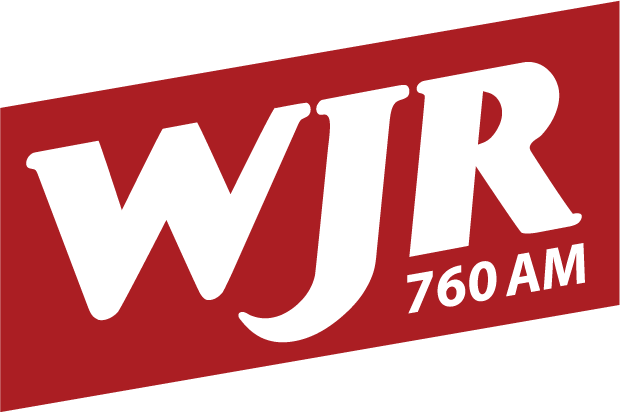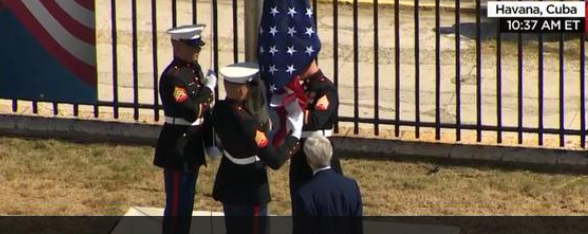Secretary of State John Kerry came to Cuba on Friday and raised the American flag above the U.S. Embassy for the first time in 54 years. “Thank you for joining us at this truly historic moment as we prepare to raise the flag … symbolizing the restoration of diplomatic relations after 54 years,” Kerry said at the ceremony, addressing the crowd in both English and Spanish. Kerry’s visit marks the symbolic end of one of the last vestiges of the Cold War. But signs of mistrust linger, and beyond the pomp and circumstance lies a long road back from more than half a century of diplomatic animosity.
On Thursday, Cuban state media put out an article in the name of Fidel Castro, writing on the occasion of his 89th birthday, in which he made no reference to the historic resumption of U.S.-Cuba relations but instead waxed on about the damage the American embargo has caused Cuba and the anniversary of the United States dropping an atomic bomb on Japan.
The rhetoric from the leader of the Cuban revolution, and the face of anti-U.S. resistance, is not unexpected. But it underscores the long-standing tensions at play as Washington and Havana work to thaw the decades long chill in relations. Even Kerry’s brief visit reflects the complexities of opening a new chapter of engagement with the Cuban government. He is accompanied by a number of U.S. lawmakers who have advocated normalizing diplomatic and economic relations with the island. Several Cuban-Americans also are part of the delegation. Dissidents not invited to embassy opening But anti-Castro dissidents won’t be at the U.S. Embassy ceremony marking the restoration of ties. Instead, Kerry will meet dissidents and human rights activists at another flag-raising, this one closed to press at the residence of the U.S. chief of mission, along with a broad cross section of Cuban entrepreneurs, journalists and artists.
Florida Sen. Marco Rubio, the son of Cuban immigrants, blasted the decision in a foreign policy speech delivered in New York Friday morning. “As a symbol of just how backward this policy shift has turned out to be, no Cuban dissidents have been invited to today’s official flag-raising ceremony at the U.S. Embassy in Havana,” Rubio said. “Cuba’s dissidents have fought for decades for the very Democratic principles President Obama claims to be advancing through these concessions. Their exclusion from this event has ensured it will be little more than a propaganda rally for the Castro regime.”
Sen. Bob Menendez, a New Jersey Democrat and also the son of Cuban immigrants, said it was “shameful” that Cuba could bar dissidents from the ceremony and said the U.S. flag should not fly in a country that does not value freedom. “A flag representing freedom and liberty will rise today in a country ruled by a repressive regime that denies its people democracy and basic human rights. This is the embodiment of a wrongheaded policy that rewards the Castro regime’s brutality at the expense of the Cuban people’s right to freedom of expression and independence,” Menendez said in a statement. But Republican Sen. Jeff Flake of Arizona, who joined Kerry as part of the American delegation, welcomed the Embassy reopening. “The United States will be able to do much more to protect and serve U.S. citizens in Cuba and encourage a better future for the Cuban people with an American flag flying over our embassy in Havana,” he said in a statement.
U.S. officials shrugged off the fact that dissidents were only invited to attend the second ceremony, chalking it up to “limited space” at the Embassy flag-raising, which they termed a “government-to-government movement.” But it reflected attention to the sensitivities of the regime. When Cuban Foreign Minister Bruno Eduardo Rodriguez visited Washington to reopen the Cuban embassy, he underscored the differences that remain. Standing next to Kerry at the State Department last month, Rodriguez made clear the full normalization of ties between the United States and Cuba would be impossible as long as the blockade remains.
President Barack Obama has eased some travel and business restrictions, but only Congress can lift the 53-year-old embargo, something that is unlikely to happen with Republicans controlling both chambers through the end of his term.
“Where we go from here has to do with what (happens) in the next 16 months, while the President is in office, if he is able to consolidate what has already been done,” said Julia Sweig, a Latin America expert long at the forefront of Washington’s Cuba policy debate. “That happens by using his executive authority to open up new opportunities for travel, trade and investment. And the Cuban government needs to do the same,” she said. “This could neutralize remaining opposition in Congress and make it impossible for the next president, if it is a Republican, to reverse it.” There are other areas where the administration is already pushing the limits.Take tourism. While only Congress can officially lift the “ban” on tourism, the Treasury Department has taken a liberal view of what “tourism” means when it provides licenses to travel to the island. The parent company of Carnival, Princess and several other cruise lines plan to launch “people-to-people” visits to the island by ship. Other tour companies are offering vacation packages to Cuba for Americans loosely labeled as “cultural experiences.” Sweig said there are other business sectors that could benefit from the same treatment.”The difference between yes and no on any sector is a political decision by the White House,” Sweig said. “They don’t’ have to wait for Congress.” Senior administration officials said they are examining what more the President can do to support the Cuban people and Cuban entrepreneurs but said he would be cautious about going too far, too fast.
No plan to gut embargo
The officials said that the President’s calculus in carving out certain sectors — health, agriculture, telecom and information — was that they could be justified within the President’s executive authority as humanitarian in nature and opening Cuba to the outside world.
But Obama will not do an end run around Congress and gut the embargo, they said, something Republican lawmakers opposed to the new policy have accused him of.
“These are areas we think can help bring about improvements in the lives of average Cubans even if they bring some benefit to a government we disagree with,” one senior official said. “We are making exceptions to the embargo but still keeping the premise of it.
The official continued, “The question of whether you want basic manufacturing to sell to Cuba is a very different question that goes to the heart of a law which Congress passed.”
The United States is also looking for the Cuban government to take steps to improve the relationship. The administration hopes to convince the Cuban government to extradite some American criminals currently taking refuge on the island, such as Joanne Chesimard, better known as Assata Shakur, and William Guillermo Morales.
Castro granted Chesimard, a convicted murderer wanted by the FBI, political asylum in Cuba, where she has remained ever since escaping from a life sentence in 1979 from a New Jersey prison. Morales, a member of a militant Puerto Rican separatist movement, planted a bomb at a New York military installation and faced 89 years in prison when he escaped from police custody while in a hospital in New York.
Washington also wants to settle property disputes for Americans that were living in Cuba when the two countries cut off ties.
In addition, the U.S. wants to increase existing, albeit modest, cooperation between Washington and Havana on areas such as counternarcotics, migration, environment and global health. With American diplomats now free to travel across the island, officials hope they will get a better sense of the needs of the Cuban people and how the United States can help.
Perhaps the most important driver of warming ties between the two countries, however, will be the American and Cuban people. Officials say that the increase in Americans traveling to Cuba has been positive, with Cubans interacting with regular Americans for the first time in more than 50 years.
“They see we don’t have horns and a tail,” one official said. “And Americans are getting a more nuanced view of Cuba than cigars, mojitos and old cars.”


